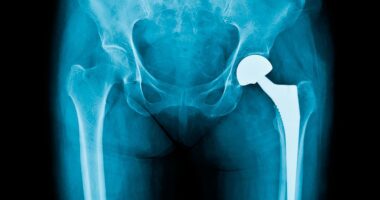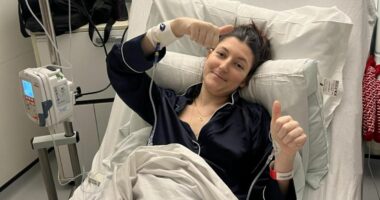Share this @internewscast.com
Many individuals dream of starting a family, but conception isn’t always straightforward due to various factors affecting women’s ability to become pregnant. If you’re currently trying to conceive, it’s worth noting that a specialist has pointed out a habit that might be reducing your chances of getting pregnant—something quite unexpected.
Late-night phone browsing or falling asleep to Netflix may seem harmless, but experts warn it could be quietly undermining fertility. Mr. Himanshu Borase, a consultant gynaecologist and expert at Family First Fertility network—a platform linking people to trusted clinics and treatments across the UK—reports a growing number of patients whose late-night screen habits are disrupting their sleep, negatively impacting both male and female reproductive health.
Though it might be hard to believe, the specialist suggests it could be affecting your efforts to conceive. This guidance adds to existing advice on enhancing your pregnancy chances through dietary changes.
Mr. Borase explained: “The blue light from phones and tablets delays the release of melatonin, the hormone that signals our body it’s time to sleep. Melatonin is essential not only for sleep but also for protecting eggs from oxidative stress and supporting embryo development. Disrupted sleep can, therefore, lead to fertility issues.”
Borase noted that many patients admit to scrolling social media in bed, watching videos until late, or waking up at night to check notifications. “This disrupts the body’s circadian rhythm and elevates stress levels, significantly affecting sleep quality and hormone balance,” he stated.
Poor sleep can interfere with the delicate hormonal signals critical for reproduction. “It affects LH, FSH, oestrogen, and progesterone levels, which are crucial for ovulation and menstrual regularity,” explained Borase.
“For men, chronic sleep loss reduces testosterone, sperm count and motility.” Research is said to back these clinical observations, as women sleeping fewer than seven or more than nine hours nightly tend to experience lower IVF success rates, whilst men with chronic poor sleep frequently demonstrate diminished sperm quality.
Prolonged sleep disruption can also worsen existing fertility problems. “In women with PCOS, poor sleep worsens insulin resistance and androgen excess.
“It may also accelerate ovarian ageing and even bring forward the onset of menopause,” Borase warns. Heightened cortisol from sleep deprivation further inhibits reproductive hormones, worsening the issue.
The psychological impact is considerable too, as he added: “Patients struggling with sleep are more anxious, more fatigued and find the fertility journey much harder. It creates a vicious cycle where poor sleep increases stress and stress further disrupts sleep.”
What can I do to better my chances?
Borase emphasises that minor lifestyle adjustments can yield significant results. He suggests implementing a screen ban of at least 60 to 90 minutes before bedtime, with two hours being optimal for those TTC (trying to conceive) or undergoing treatment.
Combine this with a dark, cool bedroom setting and unwind with calming activities such as reading or stretching. For individuals going through IVF or egg freezing, prioritising sleep becomes especially vital.
“Good sleep is a cornerstone of fertility treatment,” he added. “It optimises hormone balance, supports egg and sperm health and helps patients cope emotionally. Simply put, better sleep can mean better outcomes.”












